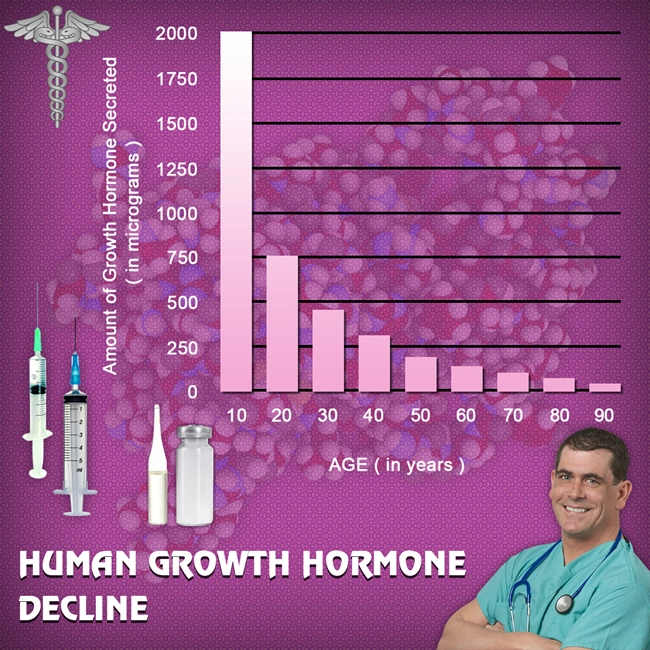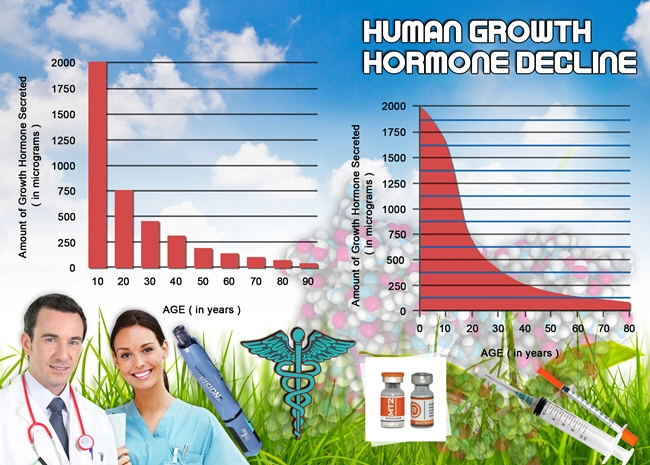
Introduction
Impotence, commonly referred to as erectile dysfunction (ED), is a prevalent condition among American males that significantly impacts quality of life. Recent studies have begun to unravel a concerning association between impotence and cardiovascular risk factors, specifically hypertension and high cholesterol. This article delves into the prevalence of these cardiovascular risk factors in American males experiencing sexual dysfunction, offering insights into the broader implications for men's health.
The Prevalence of Impotence in American Males
Impotence affects millions of American men across various age groups, with its prevalence increasing with age. It is estimated that over 30 million men in the United States experience some form of ED. While age is a significant risk factor, lifestyle and underlying health conditions play a crucial role in the development of this condition. Understanding the connection between impotence and cardiovascular health is essential for effective management and prevention strategies.
Hypertension and Impotence: A Dangerous Duo
Hypertension, or high blood pressure, is a well-documented risk factor for cardiovascular diseases and has been increasingly linked to impotence. Studies have shown that men with hypertension are more likely to experience ED compared to those with normal blood pressure levels. The mechanisms behind this association are multifaceted, involving endothelial dysfunction and vascular damage, which impair blood flow to the penis. In a recent survey conducted among American males, approximately 60% of those with impotence also reported having hypertension, underscoring the need for routine blood pressure monitoring in men experiencing sexual dysfunction.
High Cholesterol: An Overlooked Culprit
High cholesterol is another critical cardiovascular risk factor that has been implicated in the development of impotence. Elevated levels of low-density lipoprotein (LDL) cholesterol can lead to atherosclerosis, a condition characterized by the buildup of plaques in the arteries, which can restrict blood flow to the penis. Research indicates that men with high cholesterol levels are at a significantly higher risk of developing ED. In the same survey, about 45% of American males with impotence were found to have high cholesterol levels, highlighting the importance of cholesterol management in the prevention and treatment of sexual dysfunction.
The Interplay Between Cardiovascular Risk Factors and Impotence
The coexistence of hypertension and high cholesterol in men with impotence suggests a complex interplay between these cardiovascular risk factors and sexual health. Both conditions contribute to vascular damage, which is a primary cause of ED. Moreover, the presence of these risk factors can exacerbate the severity of impotence, making it more challenging to treat. Therefore, a comprehensive approach that addresses both cardiovascular health and sexual function is crucial for improving outcomes in affected men.
Implications for Men's Health and Preventive Strategies
The strong association between impotence and cardiovascular risk factors has significant implications for men's health. Routine screening for hypertension and high cholesterol in men with ED can facilitate early detection and intervention, potentially preventing more severe cardiovascular events. Lifestyle modifications, such as adopting a heart-healthy diet, engaging in regular physical activity, and quitting smoking, can mitigate the risk of both impotence and cardiovascular diseases. Additionally, medical management of hypertension and high cholesterol, including the use of medications, can improve both cardiovascular health and sexual function.
Conclusion
The prevalence of hypertension and high cholesterol among American males with impotence underscores the critical link between sexual health and cardiovascular well-being. By recognizing and addressing these risk factors, healthcare providers can offer more effective management strategies for men experiencing sexual dysfunction. As research continues to elucidate the mechanisms behind this association, it is imperative for men to prioritize both their cardiovascular and sexual health to lead fulfilling and healthy lives.
Contact Us Today For A Free Consultation
Dear Patient,
Once you have completing the above contact form, for security purposes and confirmation, please confirm your information by calling us.
Please call now: 1-800-380-5339.
Welcoming You To Our Clinic, Professor Tom Henderson.

- Revolutionizing Intimacy: Advanced Therapies for Erectile Dysfunction in American Men [Last Updated On: February 19th, 2025] [Originally Added On: February 19th, 2025]
- Unveiling the Spectrum of Alternative Therapies for Managing Impotence in American Males [Last Updated On: February 19th, 2025] [Originally Added On: February 19th, 2025]
- Demystifying the Shadows: A Comprehensive Examination of Erectile Dysfunction [Last Updated On: February 25th, 2025] [Originally Added On: February 25th, 2025]
- Fractured Masculinity: Overcoming Impotence and Embracing Emotional Freedom [Last Updated On: February 26th, 2025] [Originally Added On: February 26th, 2025]
- Behind the Silence: Revealing the Covert Battle Against Male Impotence [Last Updated On: February 27th, 2025] [Originally Added On: February 27th, 2025]
- Decoding the Mysteries of Erectile Dysfunction: A Scientific Approach [Last Updated On: February 28th, 2025] [Originally Added On: February 28th, 2025]
- Revamping Masculinity: Thriving in Life Despite Male Impotence [Last Updated On: February 28th, 2025] [Originally Added On: February 28th, 2025]
- Decoding the Enigma: Unraveling Fallacies and Unveiling Realities about Erectile Dysfunction [Last Updated On: March 1st, 2025] [Originally Added On: March 1st, 2025]
- Persistence of Potency: Unraveling the Psychological Aftermath of Impotence [Last Updated On: March 2nd, 2025] [Originally Added On: March 2nd, 2025]
- Exploring the Psychological and Societal Impact of Erectile Dysfunction: Addressing Stigma, Treatment Options, and Lifestyle Changes [Last Updated On: March 3rd, 2025] [Originally Added On: March 3rd, 2025]
- Erectile Dysfunction: Early Indicator of Cardiovascular Disease in Men [Last Updated On: March 4th, 2025] [Originally Added On: March 4th, 2025]
- Exploring Testosterone's Impact on Male Sexual Health and Impotence Management [Last Updated On: March 5th, 2025] [Originally Added On: March 5th, 2025]
- Exploring the Link Between Stress and Erectile Dysfunction in American Men [Last Updated On: March 6th, 2025] [Originally Added On: March 6th, 2025]
- Navigating Impotence in Relationships: Communication Strategies and Maintaining Intimacy Together [Last Updated On: March 7th, 2025] [Originally Added On: March 7th, 2025]
- Understanding and Overcoming Male Impotence: A Path to Recovery and Success Stories [Last Updated On: March 8th, 2025] [Originally Added On: March 8th, 2025]
- The Emotional and Relational Impact of Impotence: Navigating Challenges for Stronger Relationships [Last Updated On: March 9th, 2025] [Originally Added On: March 9th, 2025]
- Innovative Treatments Revolutionizing Impotence Care in American Males [Last Updated On: March 11th, 2025] [Originally Added On: March 11th, 2025]
- Understanding and Overcoming Impotence: A Comprehensive Guide for American Males [Last Updated On: March 12th, 2025] [Originally Added On: March 12th, 2025]
- Revolutionizing Male Health: A Comprehensive Guide to Overcoming Impotence Through Lifestyle Changes [Last Updated On: March 13th, 2025] [Originally Added On: March 13th, 2025]
- Understanding the Therapeutic Pathway: Emotional Recovery from Impotence in American Males [Last Updated On: March 15th, 2025] [Originally Added On: March 15th, 2025]
- Impotence: Understanding, Managing, and Rebuilding Intimacy in American Men [Last Updated On: March 16th, 2025] [Originally Added On: March 16th, 2025]
- Diabetes and Impotence in American Males: Causes, Impacts, and Management Strategies [Last Updated On: March 18th, 2025] [Originally Added On: March 18th, 2025]
- American Men's Triumph Over Impotence: Breaking Silence and Stigma [Last Updated On: March 18th, 2025] [Originally Added On: March 18th, 2025]
- Overcoming Impotence: Breaking Stigma, Seeking Help, and Empowering Men [Last Updated On: March 19th, 2025] [Originally Added On: March 19th, 2025]
- Restorative Sleep: Key to Enhancing Sexual Health and Managing Impotence in American Males [Last Updated On: March 19th, 2025] [Originally Added On: March 19th, 2025]
- Understanding and Overcoming Impotence: Causes, Treatments, and Empowerment Strategies [Last Updated On: March 20th, 2025] [Originally Added On: March 20th, 2025]
- Telemedicine Revolutionizes Impotence Care for American Men: Benefits and Future Prospects [Last Updated On: March 20th, 2025] [Originally Added On: March 20th, 2025]
- Impotence in Aging Men: Biological, Psychological, and Treatment Insights [Last Updated On: March 20th, 2025] [Originally Added On: March 20th, 2025]
- Mental Resilience: Key to Overcoming Impotence in American Men [Last Updated On: March 21st, 2025] [Originally Added On: March 21st, 2025]
- Economic and Emotional Toll of Impotence on American Men: A Holistic View [Last Updated On: March 21st, 2025] [Originally Added On: March 21st, 2025]
- Impotence in American Males: Causes, Treatments, and Triumphs [Last Updated On: March 21st, 2025] [Originally Added On: March 21st, 2025]
- Exploring Aphrodisiacs for Impotence: Scientific Insights and Holistic Approaches [Last Updated On: March 21st, 2025] [Originally Added On: March 21st, 2025]
- Impotence in American Men: Causes, Treatments, and Restoring Intimacy [Last Updated On: March 22nd, 2025] [Originally Added On: March 22nd, 2025]
- Medication-Induced Impotence: Causes, Effects, and Management Strategies for American Males [Last Updated On: March 23rd, 2025] [Originally Added On: March 23rd, 2025]
- Global Perspectives on Impotence: Cultural Views and Treatments for American Men [Last Updated On: March 23rd, 2025] [Originally Added On: March 23rd, 2025]
- Work Stress and Impotence: Understanding Links and Managing Effects in American Men [Last Updated On: March 23rd, 2025] [Originally Added On: March 23rd, 2025]
- Redefining Sexual Success: Understanding and Overcoming Impotence in American Males [Last Updated On: March 23rd, 2025] [Originally Added On: March 23rd, 2025]
- Essential Vitamins and Minerals to Combat Impotence in American Men [Last Updated On: March 23rd, 2025] [Originally Added On: March 23rd, 2025]
- Obesity, Diet, and Impotence: A Guide for American Males' Sexual Health [Last Updated On: March 24th, 2025] [Originally Added On: March 24th, 2025]
- Debunking Impotence Myths: Empowering American Men with Facts and Treatment Options [Last Updated On: March 24th, 2025] [Originally Added On: March 24th, 2025]
- Understanding and Managing Erectile Dysfunction: Breaking the Silence and Stigma [Last Updated On: March 24th, 2025] [Originally Added On: March 24th, 2025]
- Exploring Secondary Causes of Impotence in American Men Beyond Medication [Last Updated On: March 24th, 2025] [Originally Added On: March 24th, 2025]
- Smoking, Alcohol, and Impotence: Risks and Mitigation Strategies for American Men [Last Updated On: March 24th, 2025] [Originally Added On: March 24th, 2025]
- PDE5 Inhibitors: Revolutionizing Erectile Dysfunction Treatment in American Men [Last Updated On: March 24th, 2025] [Originally Added On: March 24th, 2025]
- Innovative Approaches Revolutionizing Impotence Treatment and Diagnosis [Last Updated On: March 24th, 2025] [Originally Added On: March 24th, 2025]
- Innovative Gadgets and Therapies Revolutionize ED Treatment and Management [Last Updated On: March 24th, 2025] [Originally Added On: March 24th, 2025]
- Overcoming Impotence: Strategies for Enhancing Seduction and Intimacy [Last Updated On: March 24th, 2025] [Originally Added On: March 24th, 2025]
- Lifestyle Choices Impacting Male Sexual Health: Diet, Exercise, and More [Last Updated On: March 24th, 2025] [Originally Added On: March 24th, 2025]
- Chronic Stress and Impotence: Understanding Links and Managing Effects [Last Updated On: March 24th, 2025] [Originally Added On: March 24th, 2025]
- Acupuncture as a Complementary Therapy for Impotence in American Males [Last Updated On: March 25th, 2025] [Originally Added On: March 25th, 2025]
- Overcoming Impotence: Partners' Role in Recovery and Intimacy [Last Updated On: March 25th, 2025] [Originally Added On: March 25th, 2025]
- Impotence and Self-Esteem: Counseling Strategies for Recovery and Resilience [Last Updated On: March 26th, 2025] [Originally Added On: March 26th, 2025]
- Impotence in American Men: Causes, Treatments, and Holistic Recovery Strategies [Last Updated On: March 26th, 2025] [Originally Added On: March 26th, 2025]
- Understanding Impotence: Anatomy, Blood Flow, and Holistic Treatment Approaches [Last Updated On: March 26th, 2025] [Originally Added On: March 26th, 2025]
- Physical Therapy: A Comprehensive Approach to Treating Impotence in American Males [Last Updated On: March 26th, 2025] [Originally Added On: March 26th, 2025]
- Endocrine Disorders and Impotence: Hormonal Imbalances and Treatment Strategies [Last Updated On: March 26th, 2025] [Originally Added On: March 26th, 2025]
- Psychological Approaches to Managing and Overcoming Impotence in American Males [Last Updated On: March 26th, 2025] [Originally Added On: March 26th, 2025]
- Exercise as a Potent Remedy for Impotence in American Males [Last Updated On: March 26th, 2025] [Originally Added On: March 26th, 2025]
- Overcoming Impotence: Understanding Causes and Embracing Sexual Wellness in Modern Men [Last Updated On: March 27th, 2025] [Originally Added On: March 27th, 2025]
- Navigating Insurance Coverage for Effective Erectile Dysfunction Treatment in the US [Last Updated On: March 27th, 2025] [Originally Added On: March 27th, 2025]
- Impotence in American Men: Psychological Impacts and Coping Strategies [Last Updated On: March 27th, 2025] [Originally Added On: March 27th, 2025]
- Evolving Treatments for Impotence: From Ancient Remedies to Future Innovations for American Men [Last Updated On: March 28th, 2025] [Originally Added On: March 28th, 2025]
- Impotence: Unveiling Emotional, Financial Burdens and Seeking Supportive Solutions [Last Updated On: March 28th, 2025] [Originally Added On: March 28th, 2025]
- Innovative Devices and Technologies Revolutionizing Impotence Treatment [Last Updated On: March 28th, 2025] [Originally Added On: March 28th, 2025]
- Exploring Injection and Device Therapies for Effective ED Treatment in American Men [Last Updated On: March 28th, 2025] [Originally Added On: March 28th, 2025]
- Emotional Challenges of Impotence: Coping Strategies for American Men [Last Updated On: March 28th, 2025] [Originally Added On: March 28th, 2025]
- Impotence in American Men: Redefining Masculinity and Seeking Support [Last Updated On: March 29th, 2025] [Originally Added On: March 29th, 2025]
- Impotence and Mental Health: Understanding Links and Holistic Management Strategies [Last Updated On: March 29th, 2025] [Originally Added On: March 29th, 2025]
- Overcoming Impotence: American Men's Journeys to Recovery and Confidence [Last Updated On: March 30th, 2025] [Originally Added On: March 30th, 2025]
- Mindfulness and Meditation: Complementary Approaches to Managing Impotence in American Men [Last Updated On: March 30th, 2025] [Originally Added On: March 30th, 2025]
- Understanding Impotence: Biochemical, Hormonal, and Psychological Factors in American Men [Last Updated On: March 30th, 2025] [Originally Added On: March 30th, 2025]
- Surgical Options for Impotence: Types, Considerations, and Outcomes [Last Updated On: March 31st, 2025] [Originally Added On: March 31st, 2025]
- Impotence Treatment Advances: Personalized, Non-Invasive Options on the Horizon [Last Updated On: April 1st, 2025] [Originally Added On: April 1st, 2025]
- Impotence in American Men: Psychological Impacts and Holistic Management Strategies [Last Updated On: April 2nd, 2025] [Originally Added On: April 2nd, 2025]
- Prostate Health and Impotence: A Comprehensive Guide for American Men [Last Updated On: April 2nd, 2025] [Originally Added On: April 2nd, 2025]
- Chronic Illness and Impotence: Understanding Links and Management Strategies [Last Updated On: April 5th, 2025] [Originally Added On: April 5th, 2025]
- Environmental Toxins and Male Sexual Health: Impacts and Mitigation Strategies [Last Updated On: April 6th, 2025] [Originally Added On: April 6th, 2025]
- Lifestyle Hacks to Combat Impotence: Diet, Exercise, and More for American Males [Last Updated On: April 7th, 2025] [Originally Added On: April 7th, 2025]
- Impotence in American Men: Understanding, Breaking Stigma, and Seeking Treatment [Last Updated On: April 7th, 2025] [Originally Added On: April 7th, 2025]
- Revolutionizing Impotence Treatment: Gene Therapy, Stem Cells, and New Drugs [Last Updated On: April 7th, 2025] [Originally Added On: April 7th, 2025]








